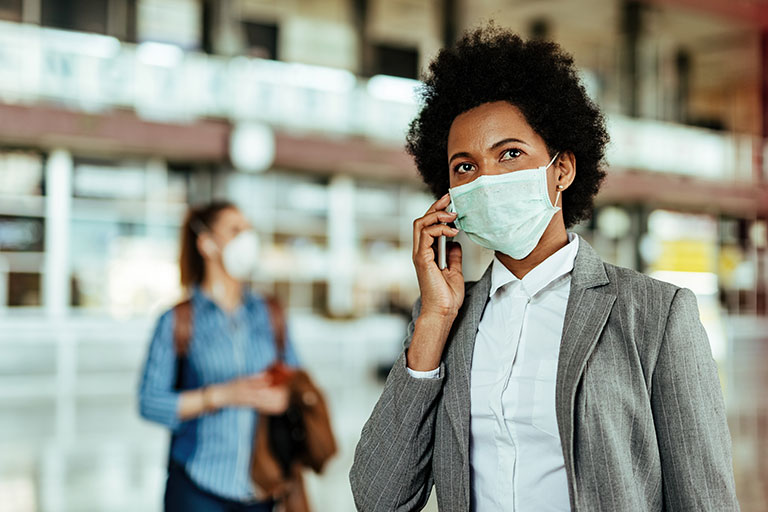February 2021
The last year has been one of great change in the global tourism industry, with travelers forced to examine their own concerns about traveling during the COVID-19 pandemic, while also dealing with the logistics of travel bans and mandatory quarantines.
A study from IUPUI's Becky Liu-Lastres, Amanda Cecil and Mona Mirehie, published in the Journal of Vacation Marketing, looked at how female business travelers' risk perception attitude and willingness to travel changed in the early months of the pandemic. While many studies of business travelers look at the segment as a whole, Liu-Lastres said very few focus on how females perceive risk and the factors that influence their decisions.
“A lot of peer reviewed studies show that women and men have very specific ways to approach risks and safety, with females more likely to feel it’s risky and be more risk averse,” Liu-Lastres said. “Their willingness to take business trips again is influenced by their assessment of the perceived risk, ability to protect themselves, safety perception, and their confidence in the overall situation.”
The researchers conducted a nationwide survey in May 2020 of 420 female business travelers, who were asked about their feelings on COVID-19 and their willingness to travel, as well as their thoughts on required travel for work.
The majority of respondents, 63.6 percent, felt somewhat unsafe taking business trips even though travel restrictions have been gradually lifted. Reasons they cited for not taking business trips at the time included a surge in cases; events, conferences, and meeting cancellations; travel restrictions posted by their companies; budget cuts; and individual health and safety concerns. According to Liu-Lastres, safety concerns included exposing themselves to risks, but also that they would expose their families to the virus.
Though the majority of respondents believed in the effectiveness of industry safety measures – such as requiring masks, enforcing social distancing and providing hand sanitizer stations – 43.5 percent still felt it was likely they might become infected if taking a business trip, and 76.2 percent were concerned about the severity of the health consequences associated with COVID-19.
If required to go on a business trip, most signaled they would engage in self-protective measures such as wearing a mask, social distancing in public, using hand sanitizer or washing hands frequently, and avoiding crowded occasions.
“Even though we think they are risk averse, we found that for those who were well-equipped and knew how to protect themselves or have a stronger confidence in doing so, they were willing to take the risk and travel again for business purposes,” Liu-Lastres said. “Although scared, for those who were well-prepared, they felt safe and less anxious about traveling. This is also related to their confidence of the overall situation.”
The researchers also found that experienced travelers – those who have been traveling for more than 10 years – were more hesitant to travel at this time. Respondents with one to five years of experience were more willing to take a risk and do so.
Liu-Lastres said these findings can help businesses and organizations create a safe climate among employees, developing a safe approach for business travel and listening to employees about their concerns.
“When they enforce business travel, they need to listen to their employees, communicate with them and help them learn how to better protect themselves,” Liu-Lastres said. “If they want to send out female employees, helping them get this knowledge and a sense of safety within the organization can help them feel more assured and willing to travel.”
Business travelers play a significant role in supporting the hospitality and tourism industry. According to Liu-Lastres, business travel makes up about 40 percent of the global tourism industry, and their impacts on local economies are significant.
“Business travelers spend more, stay in mid or upper-scale hotels, and they have more economic power as a result,” Liu-Lastres said. “In a recovery phase, you want people to travel. If you don’t understand the constraints preventing them from traveling, it’s hard to do. We’re optimistic about these findings, especially as their opinions are related to consumer confidence.”



